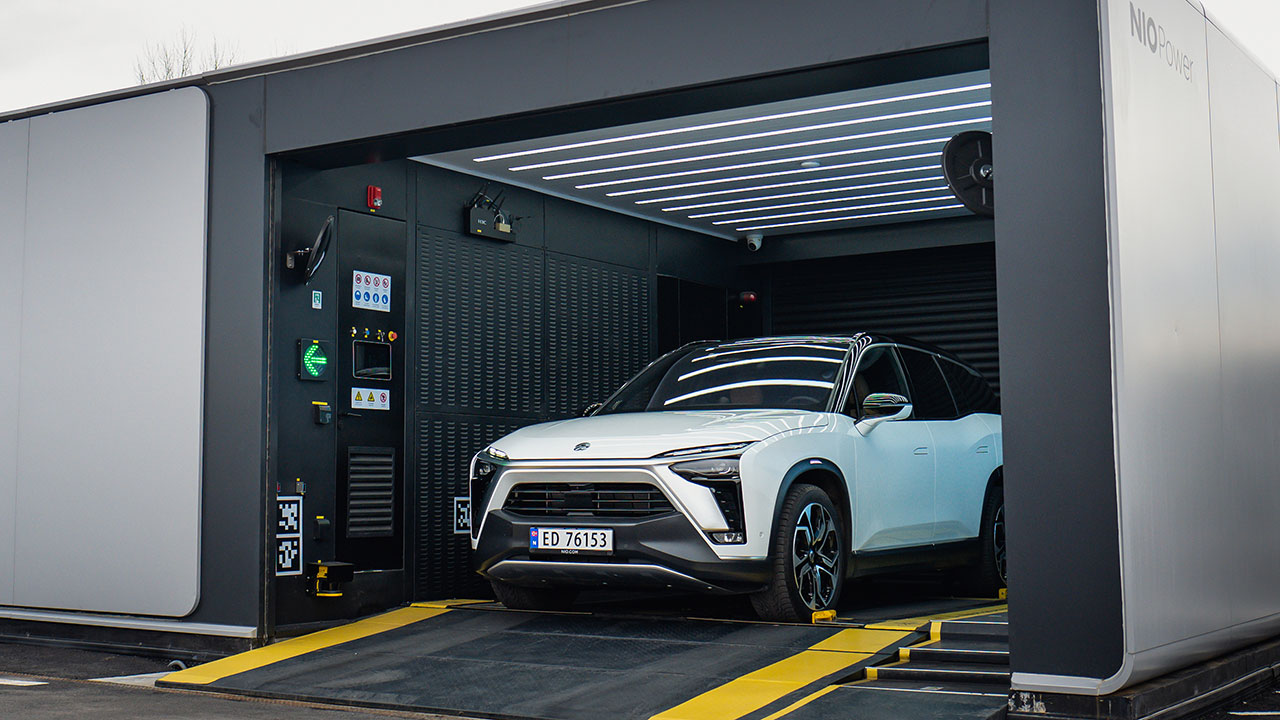Currently, Nio operates approximately 2,100 battery swap stations, called Power Swap Stations (PSS), across China. These facilities are used exclusively for Nio's electric vehicles, with 75 kWh and 100 kWh battery packs. A 150 kWh semi-solid state battery variant was launched in July after some delays, but is not yet widely available.
The partnership marks a significant shift, allowing vehicles from other brands, starting with Changan, to access Nio's PSS network. However, specific details regarding Changan's compatible electric car models and their launch dates remain undisclosed.
On November 21, Changan Automobile and #NIO signed the cooperation agreement on battery swapping in Chongqing. The two parties will jointly facilitate the standards for swappable batteries, build and share the battery swapping network, develop swappable vehicles. #PowerSwap pic.twitter.com/7HVjdfvMUY
— NIO (@NIOGlobal) November 21, 2023
William Li, Nio's founder and CEO, likens the company's battery swap system to an internet company's cloud service, emphasizing Nio's commitment to sharing its technology and infrastructure with the broader industry.
This collaboration is noteworthy as Changan ranks as China's third-largest car manufacturer, according to the China Passenger Car Association (CPCA). In this year's sales, Changan has sold over 1.1 million vehicles, with nearly 300,000 being new energy vehicles.
The partnership with Changan is not Nio's first collaborative venture. In 2018, Nio and Changan established the electric car brand Avatr. Nio has since reduced its stake in the venture, which is now significantly owned by CATL.
The alliance between Nio and Changan reflects a strategic move in the electric vehicle industry, potentially influencing the future of battery swapping technology and its adoption across various car manufacturers.
Source: Cnevpost

